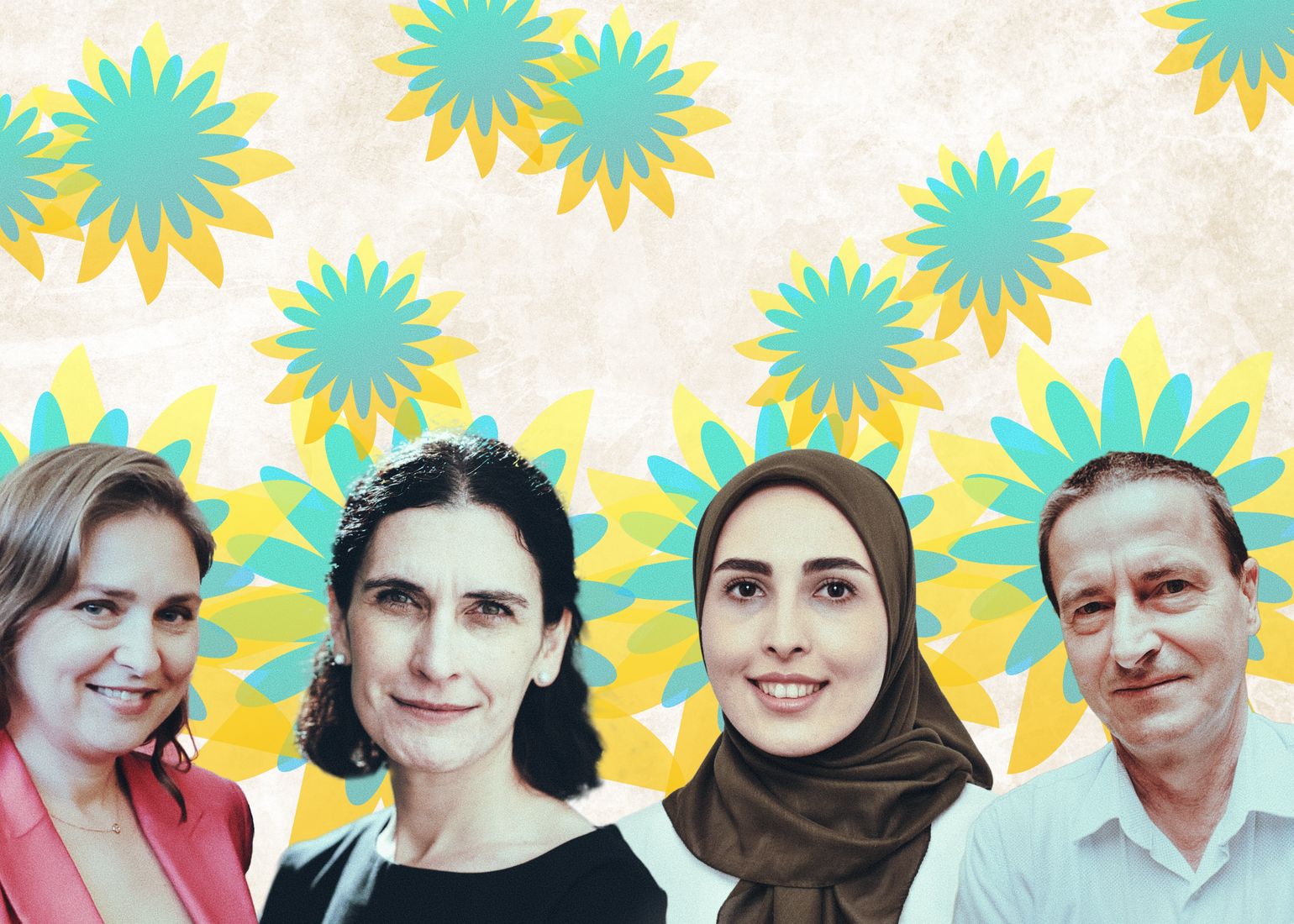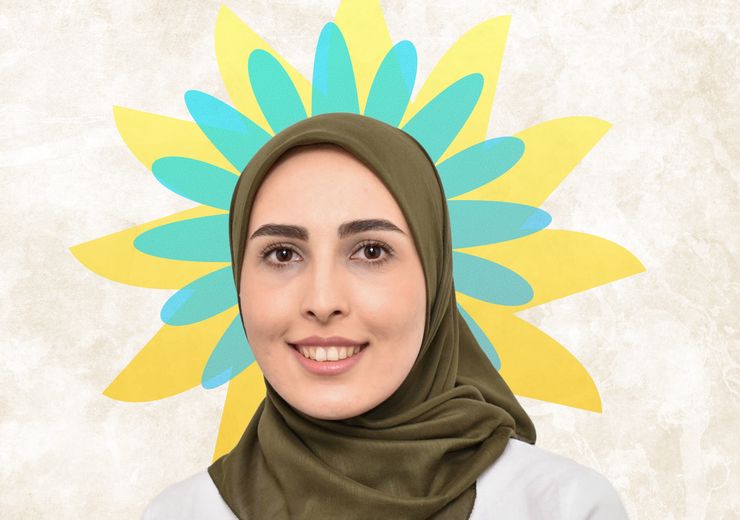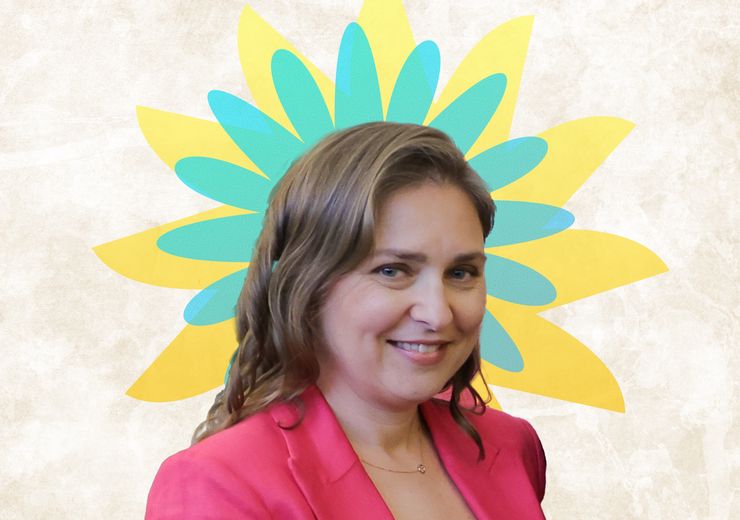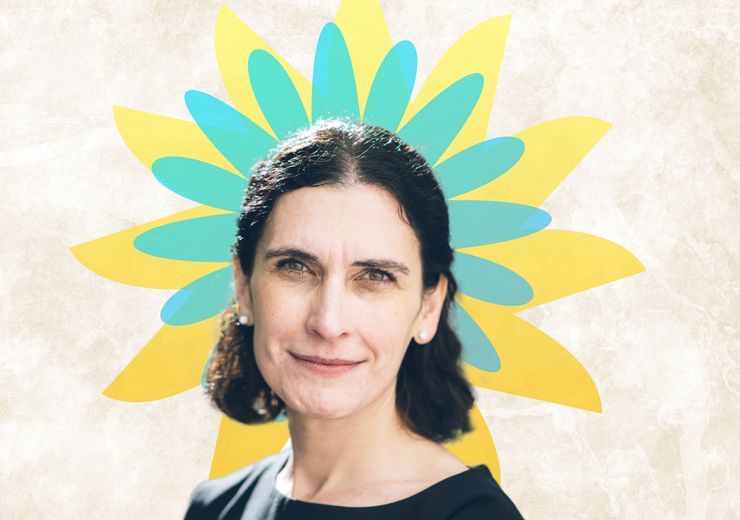Science Ambassadors
In today’s complex world, educating the next generation is essential. Our science ambassadors play a crucial role in this effort by bringing knowledge from their research directly into the classroom.

On This Page
Our Missionz
Our society works with artifacts of computer science every day. Yet computer science is still not adequately taught in schools. Even if not every child will go on to study computer science, every child should at least have the opportunity to experience the creativity and joy of the subject— the earlier, the better.
We take our mission seriously: Informatics plays a vital role in shaping society—and so do the institutions that teach it. The Science Ambassadors initiative brings this impact directly into classrooms, where researchers spark curiosity, foster critical thinking, and help build trust in science and democracy.
The initiative allows students to explore current research topics and experience science firsthand. The ambassadors lead interactive workshops, discuss their research and careers, and answer questions about science. They demonstrate how everyday phenomena and classroom concepts are reflected in research, showing students how science comes to life. The Ambassadors promote an understanding of scientific methods and encourage critical thinking.
The Science Ambassadors initiative is led by Austria’s Agency for Education and Internationalization (OeAD.
Our Ambassadors

Zahra Babaiee
PreDoc Researcher, Cyber-Physical Systems
Zahra Babaiee is a PreDoc Researcher at the Research Unit Cyber-Physical Systems at TU Wien Informatics. Her work focuses on developing efficient deep learning models for resource-constrained environments. Zahra ranked 89th out of over 200,000 participants in Iran’s National University Entrance Examination and graduated with honors from Sharif University of Technology (SUT). Her research has been published at leading conferences, including the International Conference on Machine Learning (ICML), and she was a research fellow with the MIT Computer Science and Artificial Intelligence Laboratory (CSAIL). In 2025, Zahra received a prestigious FFG Spin-off Fellowship for her project Efficient Visual Intelligence for Autonomous Driving and Mobility, which focuses on creating computationally efficient and reliable vision models for autonomous driving and advanced driver-assistance systems (ADAS). The project, endowed with €500,000, is supervised by Professor Radu Grosu and aims to bring innovative solutions to the field of mobility.
Ivona Brandić
Full Professor, Computational Sustainability
Ivona Brandić is a Professor and Head of the Research Unit Computational Sustainability at TU Wien Informatics. She received the prestigious FWF START prize in 2015 and has been a member of the Young Academy of the Austrian Academy of Sciences since 2016. She earned her PhD (2007) and venia docendi (2013) in practical computer science from TU Wien. Between 2002 and 2015, she held assistant professorships at TU Wien and the University of Vienna. Ivona Brandić led the Foundations of Self-governing ICT Infrastructures (FoSII) project (2009–2012) and received TU Wien’s Distinguished Young Scientist Award in 2011 for her work on energy-efficient cloud systems. Her research interests include virtualized HPC systems, ultra-scale distributed computing, energy-efficient and sustainable computing, hybrid classical/quantum systems, and large-scale data analytics. She serves on the board of the Center for AI and Machine Learning (CAIML) and is a faculty member of the Vienna Center for Engineering in Medicine (ViCEM).
Eduard Gröller
Full Professor, Computer Graphics
Eduard Gröller is a Professor and Head of the Research Unit Computer Graphics and leads the Visualization Group at TU Wien Informatics. He earned his PhD from TU Wien in 1993. His research focuses on computer graphics, visualization, and visual computing. Eduard Gröller has delivered visualization lectures at universities across Europe and South America and is a key researcher at the VRVis Research Center. Since 2005, he has also been an adjunct professor at the University of Bergen. He has co-authored over 300 scientific publications and served on numerous editorial boards and program committees, including IEEE Visualization, EuroVis, and Eurographics. He has chaired several major conferences and was Chief Editor of Computer Graphics Forum (2008–2011). Recognized for his contributions, Eduard Gröller became a Eurographics Fellow in 2009 and received the Eurographics Outstanding Technical Contributions Award (2015) and the IEEE VGTC Technical Achievement Award (2019). He is a member of IEEE, ACM, GI, and the Austrian Computer Society, where he leads the working group on computer graphics.
Laura Kovács
Full Professor, Formal Methods in Systems Engineering
Laura Kovács is a Professor and Head of the Research Unit Formal Methods in Systems Engineering at TU Wien Informatics, where she leads the Automated Program Reasoning group (APRe). Her research focuses on the design and development of advanced theories, technologies, and tools for program analysis, with particular emphasis on automated assertion generation, symbolic summation, computer algebra, and automated theorem proving. She is the co-developer of the Vampire theorem prover and a Wallenberg Academy Fellow of Sweden. Her work has been recognized with numerous prestigious grants, including an ERC Starting Grant (2014), an ERC Proof of Concept Grant (2018), an ERC Consolidator Grant (2020), and an additional ERC Proof of Concept Grant (2025), as well as two Amazon Research Awards (2020 and 2023). In addition to her academic contributions, Laura Kovács is passionate about outreach. She has received funding from the LEA Frauenfonds to promote unplugged computer science education in elementary schools with TU Wien's eduLAB.Contact
Want to talk to our Science Ambassadors?
Contact them!

